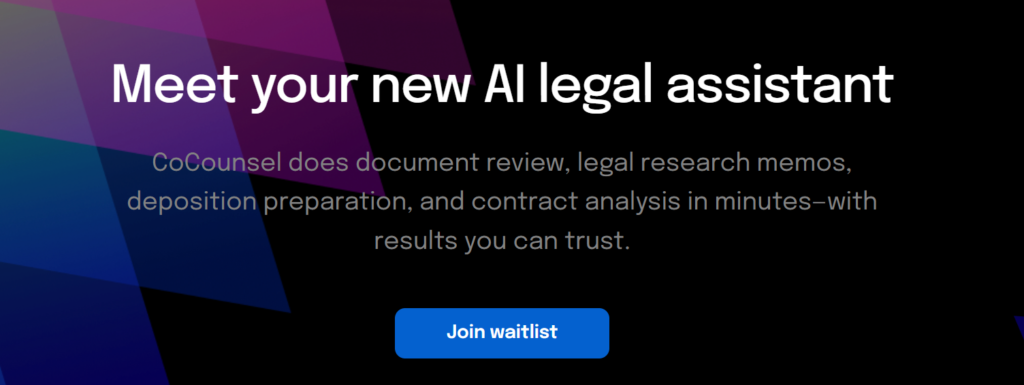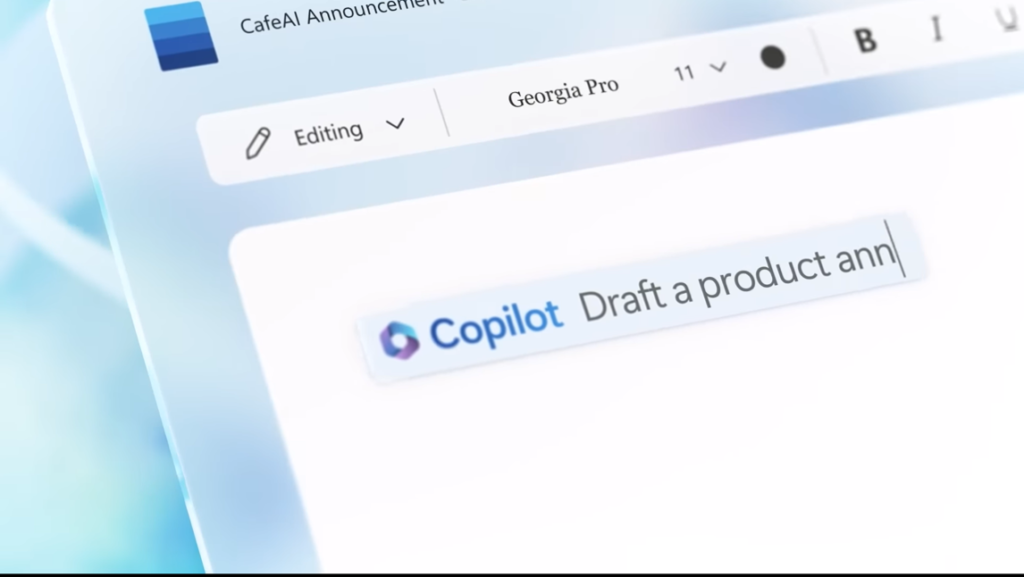Last week’s launch of GPT-4, OpenAI’s latest generative language model, opens up particularly interesting prospects for certain industries — including the legal industry. The GPT-n series of language prediction models have been creating a huge buzz, Tilt has noted previously. But GPT-4 goes a step further than previous iterations. Not only has it proven capable of passing (and scoring highly in) a simulated legal bar exam, it’s already being used by tech companies. Casetext has developed CoCounsel — a GPT-4-powered legal tool — while Microsoft has developed its new Microsoft 365 Copilot tool in partnership with OpenAI and GitHub.
OpenAI launched GPT-4 on Tuesday last week. The new model represents another leap in ChatGPT’s capabilities, after the November release of its predecessor — GPT-3.5, a recent Vox article notes. GPT-4 is OpenAI’s “most capable and aligned model yet,” according to CEO Sam Altman. Among other things, it’s more factual, creative and concise — and can understand images as well as text — Vox adds.
GPT-4’s legal capabilities
GPT-4 recently passed a simulated legal bar exam with a result that would put it in the highest 10% of test takers. This compares very favorably with GPT-3.5, which scored results that would put it in the lowest 10%, Vox notes. GPT-4 is the first large language model (LLM) to pass both the multiple choice and written portions of the bar, legal software firm Casetext notes. An LLM released in late 2022 couldn’t pass the multiple choice portion of the exam — illustrating just how quickly the tech is advancing.
Meanwhile, Washington Post columnist Geoffrey A. Fowler recently tested GPT-4 and GPT-3.5 on ten sample questions written by US body the Law School Admission Council. GPT-4 got nine out of ten questions right, compared to six out of ten for GPT-3.5. These questions weren’t based on rote memorization, but on analyzing a variety of facts and selecting relevant information from them. “GPT-4 has made an improvement in its ability to follow complex instructions that involve lots of variables,” Fowler concluded. Ultimately, GPT-4 tackled the logical reasoning part of tests used for law school entry “like a competent law student,” he added.
Casetext’s CoCounsel: an AI legal assistant
In early March, Casetext launched CoCounsel — which it claims is the world’s first AI legal assistant. CoCounsel can read, write and understand “at a high level,” according to Casetext CEO Jake Heller. This means that lawyers can effectively outsource to it time-consuming tasks like legal research and document review, the company noted. Casetext has had access to GPT-4 for several months while preparing to launch CoCounsel, the Washington Post notes.

So far, responses to the new tech among law firms and practitioners seem to be very positive. CoCounsel automates essential, time-intensive tasks, “freeing our lawyers to focus on the most impactful aspects of practice,” noted a representative from global law firm DLA Piper recently.
Microsoft 365 Copilot: boosting productivity and transforming work
Copilot — Microsoft’s recently-announced AI tool — is being integrated into key Microsoft 365 tools, including Word, Excel, PowerPoint, Outlook, and Teams. The software drafts responses and suggests content using prompts. In Word, Copilot can draft text, amend the tone of a piece, or make it more concise. In Excel, it can analyze data, identify trends and even suggest new formulas. In PowerPoint, it can turn ideas into presentations. In Outlook, it can summarize email threads and extract any particularly important information. And in Teams, it can help create meeting agendas, summarize key developments, and produce a list of action points. Microsoft’s new Business Chat tool will also be able to pull together data from across a person’s documents, presentations, email, calendar, notes, and contacts to help group and organize information — so that the person can more easily prioritize tasks and focus on deep work.

Though Copilot isn’t specifically related to the legal industry, it’s poised to fundamentally change operations for anyone using the Office Suite of products — which will, of course, include lawyers. Watching a Copilot demonstration left tech journalist Tom Warren “convinced it will forever change how we interact with software, create documents, and ultimately, how we work,” he noted in a recent article for the Verge.
How will it fly in the legal industry?
Despite all the excitement and promise, we still don’t know how quickly GPT-4 will be integrated into the legal practice of most global firms. As expected, the tech still has a long way to go before it can exhibit genuinely human discernment and critical thought. For now, “it’s still flawed, still limited, and it still seems more impressive on first use than it does after you spend more time with it,” Altman cautioned last week.
The early adopters of AI tech that we’ve had our eyes on — including leading law firm Allen & Overy and professional service network PricewaterhouseCoopers (PwC) — have emphasized that the software will be used to facilitate repetitive work tasks and that human supervision will remain essential for the foreseeable future.
